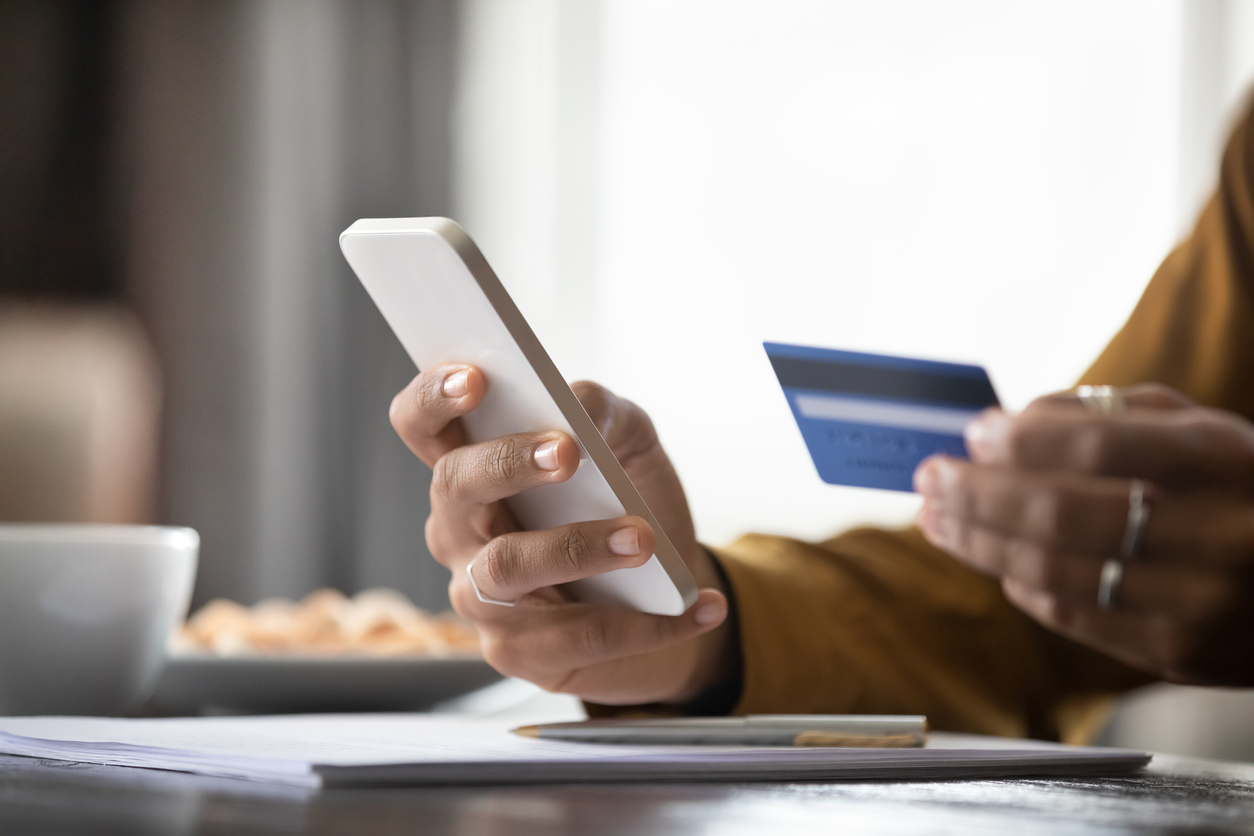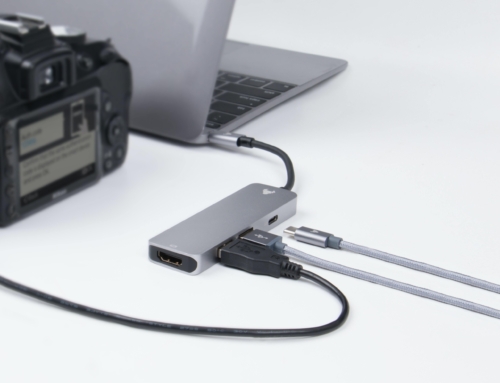Being an online professional means entering the open world of personal data and cybersecurity. The current virtual landscape features automatic data-harvesting bots – good and bad – in every direction. Further, there is malware designed to steal passwords and cookies designed to learn your favorite color.
Your data is an asset, and as a modern professional, keeping your online information safe is just part of using the internet for business and personal tasks.
Of course, most people are not data security experts to start with. We all learn best practices as we enter the information sector or spend more time online. You can quickly learn how to protect your data and manage information technology professionally through Woz U courses.
Anyone can protect their data with these five methods of personal and professional data security.
1. Improve Your Password Security for Online Information
Your password security is the first and primary gate to your personal accounts and information. A strong password (or a set of strong passwords) can keep hackers at bay. Especially if you know how to whip up a new, memorable yet secure password any time security comes into question.
Write More Complex Passwords (and Remember Them)
There are two ways to write a good password force methods can’t crack and hackers can’t guess. The first is the word combo. “distantuberwaffle” with some numbers and symbols mixed in is reasonably complex.
The other is an acronym. Turning a funny phrase into a password is unguessable, but surprisingly easy to remember. For example. “distant monkey knights craft eldritch passwords encoded into delicious waffles” becomes “dmkcepeidw”, with your usual splashes of numbers and symbols.
Use a Password Manager for Online Information
Password managers have become a must. Best practices suggest a unique, complex, memorable password for every individual account. Most people can’t handle that and if they’re expected to manually enter a password, it needs to be the same one for most accounts. The password manager can do both. Whether you’re using your browser or an extra secure application or work-provided program, a password manager is the best answer to keeping track of many complex passwords in a mostly unhackable manner.
Always Activate 2-Factor Authentication

Always activate the 2-factor. This will save your accounts from theft and worse. 2-factor usually requires that your phone or email confirm a new login from a new account, device, location, or every single login. Because hackers typically don’t have your phone or personal email control, 2-factor keeps accounts from hackers.
Further, non-passcode 2-factor like picture puzzles, line drawings, and biometrics are non-standard and therefore more difficult for a password type to steal. hack, decode, or use. Interesting password alternatives are currently more secure.
Change Your Passwords Sometimes to Protect Online Information
Make a habit of changing your passwords. Even for your primary password, come up with a new one annually – perhaps on your birthday or a special occasion. Then, update all your personal accounts in addition to updating your general accounts with the help of the password manager.
Use Different Passwords for Important/Unimportant Sites
We should use unique passwords for every account, but that is unrealistic. Instead, consider dividing your accounts by password. For example, use one password for finances and another for video streaming so that a hacked Netflix account can’t become a hacked bank account.
2. Guard Your Personal Data
Make a Habit of Protecting Private Details
Try not to share your details at all, and only in secure and private forums. Never print your social security number, home address, exact birth date, or full legal name. Keep your bank account and card numbers private and get suspicious of any person or service that asks for this kind of information out-of-place.
Use a Dummy Account for Online Information
Use a dummy email and account that is not tied to your legal identity when browsing online. When you want to try a new program or create a news reading account, use the dummy account. That email will get spam and the details will not link back to your work account or your legal personal identity.
Make Yourself Tough to Impersonate
Don’t post too much about your personal life on social media. Impersonating someone by researching their Instagram and Twitter feeds has become a commonly targeted attack, and a way to hurt you, your friends, coworkers, or your family.
Be Careful What You Photo and Screenshot
Don’t accidentally reveal your personal information with photos or screenshots. Avoid common mistakes like photographing yourself in front of your house number or streaming or screenshotting an ion order delivery page with your home address.
Delete Old Accounts & Request Data Purges
Purge your data from accounts you don’t use anymore. Cancel and delete accounts and, if you feel bold, send a message requesting that all your personal data be removed from their servers. This means future breaches from these companies will not reveal your current or past personal data.
3. Protect Your Online Information From Data Infections
Don’t Click Unverified Links
Any link could be infected or lead to an infected website. Be careful what you click or install on your computer or devices.
Watch Out for Uknown QR Codes
Scanning QR codes can also be dangerous. It can be fun to scan random codes but don’t open or install everything you can.
Regularly Delete Extra Apps and Programs
Go through the apps on your devices and computers and delete everything you don’t use regularly. If you don’t recognize it, delete it twice as fast. This is, indeed, a great way to minimize lurking malware on your system and clear out old apps that may have been heavy or carried malware elements.
Keep the Firewall and Virus Scanner Running for Online Information
Make sure your protections are in place. Configure your firewall and regularly run the virus scanner to remove identifiable malware from your devices and computers.
Occasionally Reinstall Your Operating System
You don’t have to worry about invisible malware for long if you wipe and reinstall your operating system every couple of months. With most work now on the cloud, it’s easy to reinstall your few favorite applications with a fresh OS that is guaranteed bug-free.
4. Protect Your Finances Online
Only Enter Card/Account Numbers Into Trustworthy Sites
Be cautious about where you enter your financial information. Make sure you trust the site, and that it has an HTTPS certificate at the least.
Watch for Unknown Transactions
Card numbers get stolen all the time, so keep an eye on your transactions for any card you have used for online orders or digital transactions. Unknown charges are either subscriptions that need clearing or a hacker trying to order an Uber and some Chick Fil A (true story) with your stolen card number.
Cancel Subscriptions and Close Accounts With Online Information
Don’t leave subscriptions ticking into your bank account when you’re not using them. This can create the ambiguity that hackers slip through, and you could be saving for services and games you will enjoy right now.
Set Reminders to Cancel Free Trials
Free trials are great and there are a lot of them. Remember to cancel in time by setting reminders. You can also acquire a dummy virtual card number that cannot be charged and does not link to your account.
Watch for Billing Errors
In e-commerce, technical errors happen, sometimes. Protect yourself by watching for things like double-billing, unstated fees, and incorrect charges.
Use Proxy Payment Services
Use a proxy payment service like PayPal to protect your personal bank account with a buffer payment provider. This can then prevent direct withdrawals and make payment disputes easier.
5. Defend Your Online Information After Security Breaches
Notice and Read Data Breach Reports
If you are informed of a data breach through your browser, employer, lawyer, or email, pay attention. Read the message and decide how serious the breach is regarding your personal data.
Accept ID Protection If a Company Leaked Your Data
If you are offered ID protection after a company’s data breach, use it. This protects you from identity theft when hackers use leaked data against you.
Change Your Passwords – Through Official Channels
If there is concern about a data breach, change your passwords. However, never follow a password-changing link in a breach alert message or email – this is a common hacker trick. Always change your password in the most routine and official way possible, ideally by first navigating to the provider’s official web page or directly to your user portal.
Wipe and Restore Online Information From Backups
If you are worried that your personal systems or devices were breached, reload from a recent backup after wiping hardware back to factory settings. Computer viruses can’t hide in a pave and rebuild approach.
Become an Expert at Data Security for Online Information With Woz U
Woz U is here to help you get started on a new technical branch of your career. Learn the basics and then the advanced skills of data security to become an IT professional or perfect your personal security to take on the higher-tech element so your current sector and specialty. With Woz U, you can quickly gain the technical skills you need to take the next steps in your chosen career path. With many different options, you can start your journey to a career in tech now!




